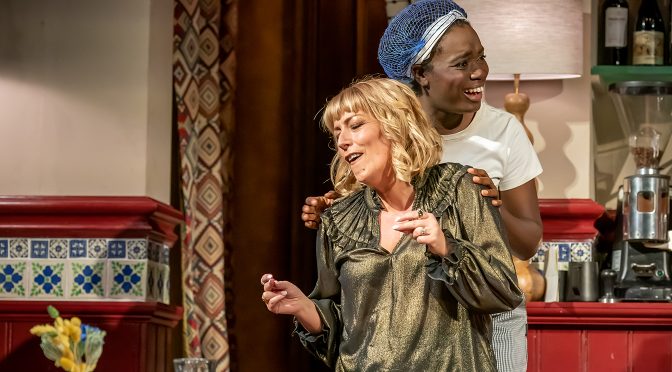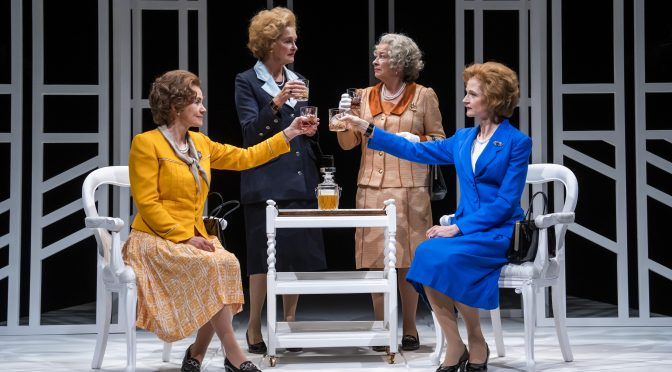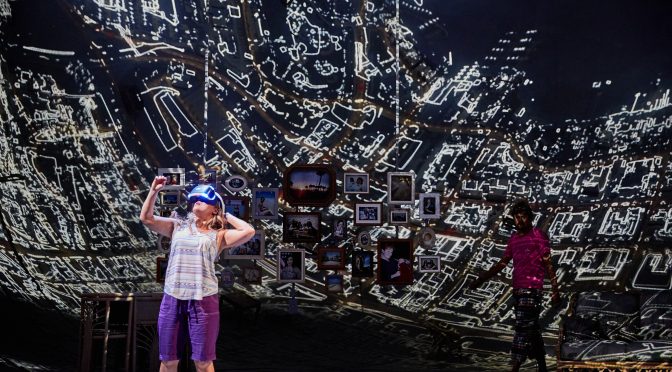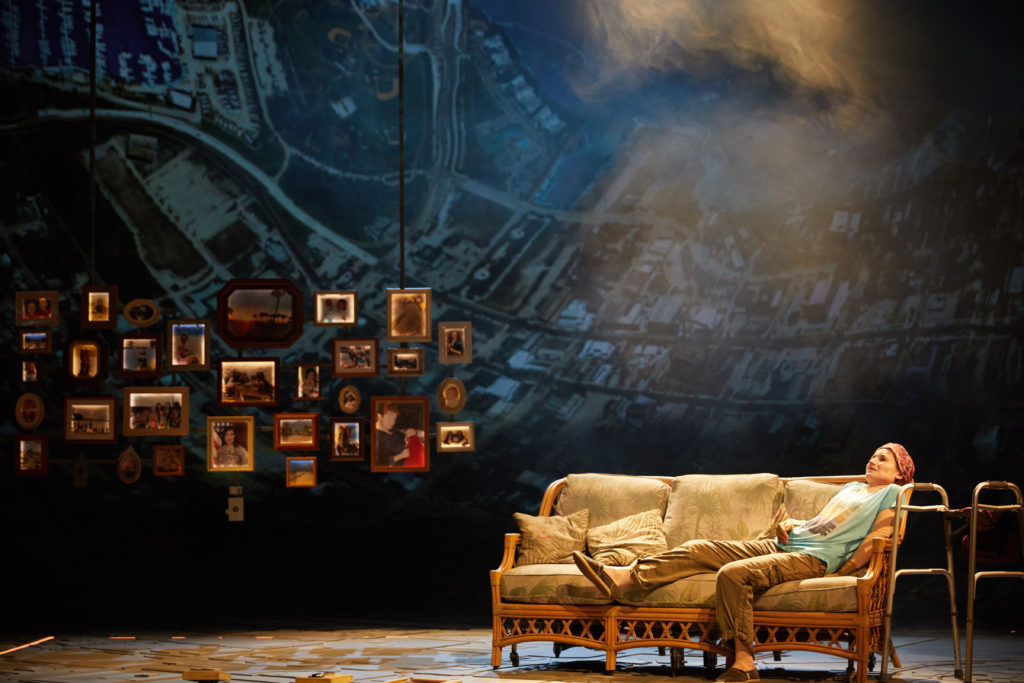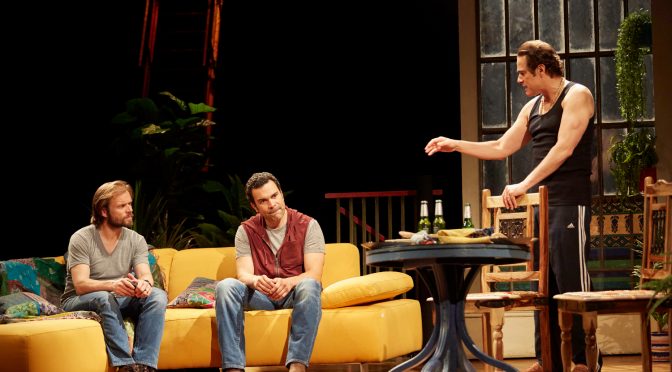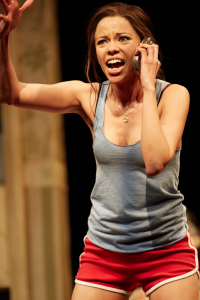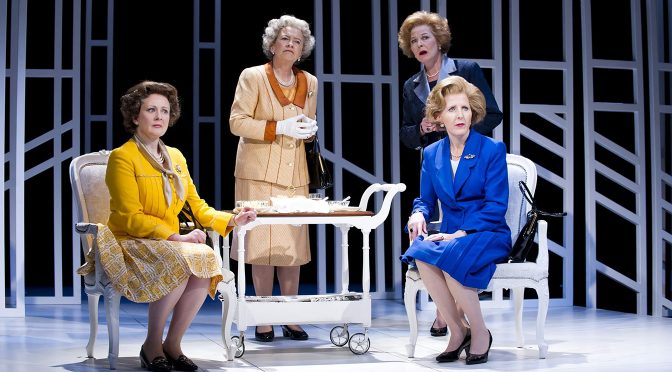If you are already tired of seasonal fare – there’s a lot of Christmas carolling going on in theatreland at the moment – this clever class comedy is a gift. With no Santa in sight, it’s a smart play from April De Angelis – and briskly directed by Indhu Rubasingham – that’s full of good jokes.
The titular heroine is a new restaurant owner and fine comic creation that makes a cracking part for Fay Ripley. Initially presented as a working-class cliché, Kerry overshares outrageously, and her every view is politically incorrect. And Kerry can be clueless – she’s called the business El Barco and put a mural of a shipwreck on the wall. You almost feel bad for laughing… but laugh you will. How much can we admire determination based on delusions?
The location is gentrified Walthamstow Village – cue class conflict – where local philosophy teacher Stephen and his Gen-Z daughter (skilfully performed by Michael Gould and Kitty Hawthorne) live. De Angelis is just as sharp about these hand-wringing liberals and the result just as funny. Since they are grieving for their wife and mother, there’s more sympathy, cleverly nurtured. But Kerry’s gaffs, delivered brilliantly by Ripley, are just all the more cringeworthy.
A homeless man called Will and Kerry’s talented chef, Athena, bring problems that connect to class and introduce topical ‘issues’ to the play. This is a piece obsessed with privilege… which can prove tiresome. Will’s objectional politics and Athena’s immigration status should give other characters pause for thought. The suggestion is that politics, both left and right, can’t deal with these real-life problems. Credit comes from dealing with the topics in depth, and creating two more great roles that Madeline Appiah and Michael Fox excel in. Yet it seems impossible for playwrights to introduce ‘privilege’ without seeming to lecture. And, in this play, that really stands out.
It’s Kerry who counts and, to De Angelis’ credit, she is an unusual figure to see take centre stage. It’s not as if a lot of sense is talked, and Kerry’s romances are improbable (there’s another love interest for her – an uncomfortable role that Gavin Spokes does well with). Furthermore, Kerry has a very nasty side. It’s a further tribute to Ripley that the character rides through a disappointing tirade. Again, Angelis is even handed – there’s a comeuppance for Stephen and a softer approach to the younger generation that shows a generous spirit. Kerry Jackson does tick boxes but is specific enough to convince (the detail is great). There’s plenty to digest, not least when it comes to Kerry’s tiramisu. And it gets a lot of laughs along the way.
Until 28 January 2022
Photos by Marc Brenner

